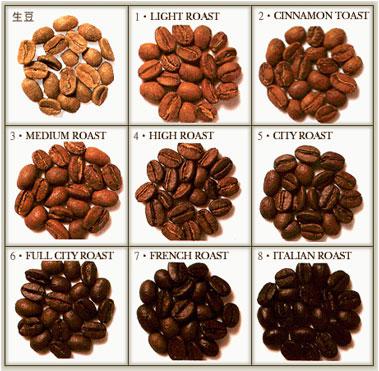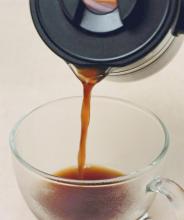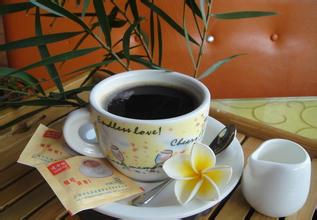Delicate, smooth, refreshing and elegant Cuban Crystal Mountain Coffee flavor, characteristics, taste and manor introduction
Coffee was introduced to Cuba from Domica in 1748, and Cuba has since grown coffee. The fertile soil, humid climate and abundant rainfall in Cuba make it a natural treasure for coffee cultivation. Suitable natural conditions provide a favorable natural environment for the growth of coffee trees, where coffee is well planted and developed. In Cuba, coffee cultivation is regulated by the State. Cuba's best coffee-growing areas are located in the Central Mountains. Because this area is not only planted with coffee, but also produces precious minerals such as quartz and crystal, it is also known as Crystal Mountain. Currently, Crystal Mountain Coffee is synonymous with premium Cuban coffee.
In Cuba, coffee beans are mostly picked by hand. During the ripening period of coffee beans, they are picked about once every half month. During or after picking, coffee beans are sorted to eliminate immature and bad beans to ensure coffee quality. Cubans usually treat coffee beans in two ways--sun and water. Solarization is the simplest, cheapest, and most traditional way to treat coffee. It involves drying the coffee fruit in the sun, but not fermenting it. The average drying time is about four weeks. The washing law allows more of the fruit aroma to enter the coffee beans, thus adding a coarse mineral fruit aroma to the coffee.
Cuba is like a crocodile crouching in the Caribbean, her tail just above the Tropic of Cancer. Cubans have always been known for their enthusiasm, but also for their honesty and stubbornness. The coffee they produce is the same, always washing according to Arab standards for coffee, and they have always followed their own traditional methods to make, very extreme control of the roasting process, both to have a very delicious rich and smooth coffee flavor, but also to keep the coffee beans do not cause excessive heat due to over-roasting...
Cubita is Cuban coffee, exported to Japan, France, Germany, Ireland, Canada and other countries. Cubita coffee entering the Chinese market is all selected from the uncontaminated Crystal Mountain coffee beans of Cuba's high altitude areas, which are typical Caribbean coffee beans. All coffee beans are strictly selected according to the standard of sieve 17-19, and the coffee beans screened are large in particle size and high in maturity. Cubita is all hand-picked and refined by washing to remove defective beans and other impurities to a large extent.
Cigars, coffee and sugar cane are the three major industries of the Republic of Cuba and enjoy a high reputation in the world. Cuban cigars have a very high reputation in the world and are known as the world's first cigars; Cuban coffee also has a high reputation in the coffee industry. Cuban Crystal Mountain Coffee ranks first in the world. Crystal Mountain is adjacent to the Blue Mountains of Jamaica. The climatic conditions are similar, comparable to Jamaica Blue Mountain Coffee. Similarly, Cuba's Crystal Mountain coffee production is not high every year, so there are many times when there is no market. Cubita is an important economic and trade activity that Cuba and China have established diplomatic relations.
Cubita adheres to the principle of perfect coffee, only single coffee, coffee beans picking, hand completed, coffee beans particles are strictly selected according to the standard of sieve 17-19, plus washing coffee beans, to a large extent to remove defective beans and other impurities, to ensure the quality of coffee. It has a high reputation in the coffee industry. Careful people will find that Cubita is also unique from other coffees. Cubita is not bitter like Italian coffee, like a knight's style; not arrogant like Blue Mountain coffee, like the emperor's feeling. However, Cubita is like an elegant princess, with a feminine natural tenderness, nobility, tenderness and elegance. Excellent balance, bitterness and sourness are well matched, and there will be a delicate, smooth, refreshing and elegant feeling when tasting. It is the best enjoyment in coffee.

Important Notice :
前街咖啡 FrontStreet Coffee has moved to new addredd:
FrontStreet Coffee Address: 315,Donghua East Road,GuangZhou
Tel:020 38364473
- Prev

Characteristics of Blue Mountain Coffee Flavor
How to distinguish between true and false Blue Mountain Coffee China Import Coffee Trading Network all say that Blue Mountain is good, Blue Mountain is really good. But are you sure you're drinking the real Blue Mountain? I dare say that more than 90% of the people who boast that they drink blue mountains are fake blue mountains. There is not no real thing in China, but it is very difficult to learn to pick a real one out of ten thousand kinds of fake goods. First, there is no brand in Blue Mountain.
- Next

Characteristics of Tanzanian coffee flavor of Tanzania coffee
Due to political instability and rampant diseases and insect pests, the coffee industry in Tanzania has been damaged, leading to a decline in the overall level of coffee and instability in quality, which in turn lead to lower prices, which are usually the result of a further decline in the coffee industry. What's more, it is estimated that more than 12% of the Arabica coffee grown in northern Tanzania from 1969 to 1985 has gone.
Related
- Detailed explanation of Jadeite planting Land in Panamanian Jadeite Manor introduction to the grading system of Jadeite competitive bidding, Red bid, Green bid and Rose Summer
- Story of Coffee planting in Brenka region of Costa Rica Stonehenge Manor anaerobic heavy honey treatment of flavor mouth
- What's on the barrel of Blue Mountain Coffee beans?
- Can American coffee also pull flowers? How to use hot American style to pull out a good-looking pattern?
- Can you make a cold extract with coffee beans? What is the right proportion for cold-extracted coffee formula?
- Indonesian PWN Gold Mandrine Coffee Origin Features Flavor How to Chong? Mandolin coffee is American.
- A brief introduction to the flavor characteristics of Brazilian yellow bourbon coffee beans
- What is the effect of different water quality on the flavor of cold-extracted coffee? What kind of water is best for brewing coffee?
- Why do you think of Rose Summer whenever you mention Panamanian coffee?
- Introduction to the characteristics of authentic blue mountain coffee bean producing areas? What is the CIB Coffee Authority in Jamaica?

